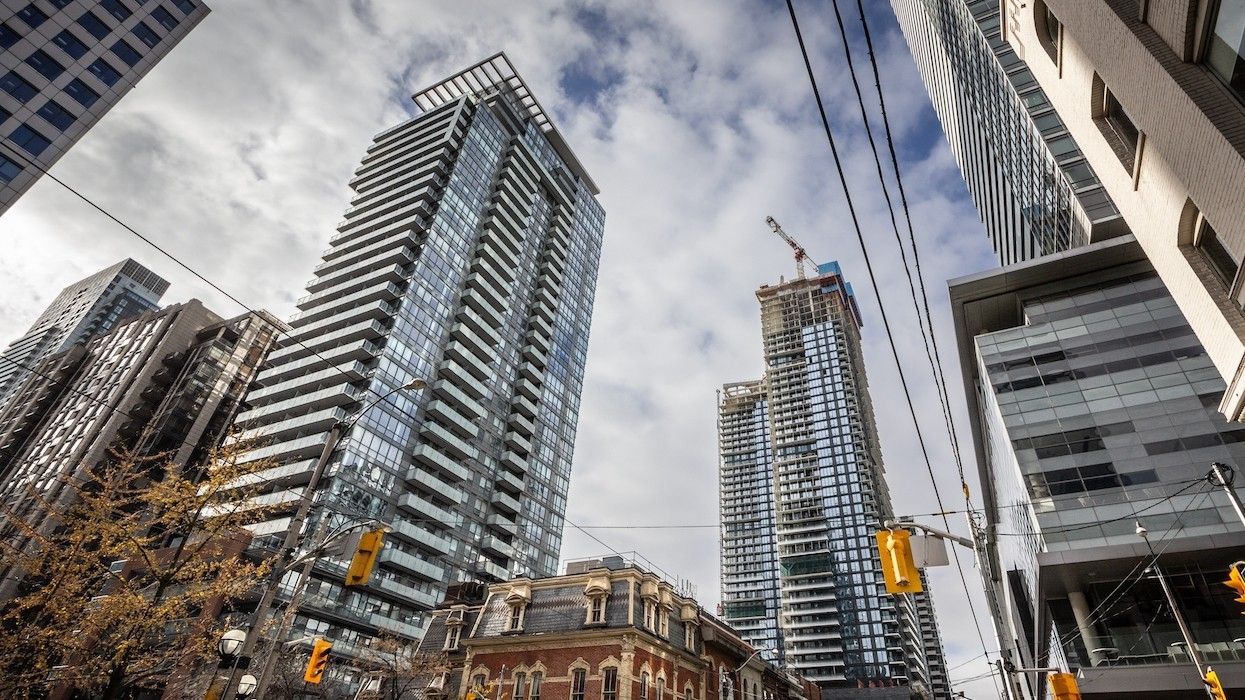For years now, Mark Morris has been sounding the alarm on blanket appraisals, a financing arrangement where the bank assumes the original purchase price of a new build rather than the true appraisal value. It’s not an unattractive proposition at first blush, particularly when you think about the state of the new condo segment in the Greater Toronto Area, for example, where valuations have aggressively downtrended.
“It happened frequently, particularly several years ago,” says Morris, who’s a real estate lawyer with LegalClosing.ca. “I've seen it less now, but it still does happen.”
In fact, The Globe and Mail reported earlier this week that a blanket appraisal was provided to buyers of one of Gairloch Developments’ condo projects in Leaside. For one buyer in particular, the offer, in this case from RBC, assumed a valuation that was around $600,000 above the value he was provided when he got his unit appraised. Had he taken RBC up on the blanket appraisal, that buyer would have secured the mortgage he needed to close the property.
A situation like this is why Morris suspects that blanket appraisals have “ebbed” recently — although it's tough to say anything for certain about how pervasive they are or aren't, as blanket appraisals are arranged privately with the builder. In any case, what used to be a $50,000 discrepancy between the initial purchase price and blanket appraisal value is now more like a $500,000 discrepancy.
“The risk profile of the transaction, from a bank's perspective, has increased,” Morris says. “But the interesting question is why. Why is this happening? What do the banks get out of it?”
Although tanking condo valuations have sparked fresh conversation surrounding blanket appraisals, Ron Butler, broker at Butler Mortgage, notes that the practice has been around for some 30 years. “There wasn't that many condos before, so it was mainly for pre-construction houses,” he adds.
For today’s condo builds, where you’re looking at a several-year-close in a distressed market no less, blanket appraisals are a different beast entirely. Now, you’re dealing with banks (not just RBC) that are offering these blanket appraisals because they’ve supplied, say, a $500-million construction loan to a condo builder, only to have those projects on the brink of distress because the individual buyers aren’t qualifying for the lending they expected to.
“So the bank says, ‘We have this half-a-billion-dollar loan, we need the condo corporation to close, so we need enough of the buyers to be able to complete their financing in order to close with our builder.’ And therefore, it's in their best interest to make it easier for buyers to get an individual mortgage,” Butler explains. “It's about changing one big half-a-billion-dollar problem into 100 or 200 smaller problems, of which some of them will be no problem. And if you’re a bank, that’s risk management.”
Morris points out that if the bank doesn't offer these blanket mortgages, they end up “on the hook” for the construction financing. “In other words, blanket appraisals can benefit the bank as much as they do consumers who are seeking to avoid breach,” he says. “That's the nefarious part.”
While compellingly, a blanket appraisal allows the buyer to secure the mortgage they were anticipating when they committed to the investment in the first place, Leah Zlatkin, a licensed mortgage broker and expert with LowestRates.ca underscores that the territory is tricky given the realities of today’s market. And in some cases, she warns, it can put buyers who aren’t so mortgage-savvy in a really dangerous position, “where they think their property is actually worth more than they think it is.”
On top of that, she draws attention to the resale risk, which extends to investor buyers with hopes for a near-term flip and end-user buyers alike. “Say your property’s only worth $420,000, but your mortgage was based on $500,000, you may be at a loss if push comes to shove and you need to sell the property tomorrow.”
Zlatkin urges consumers to think carefully before committing to a blanket appraisal, and to take a thorough stock of the lending options that might be available to them.
“There's a high-ratio mortgage option for somebody who doesn't have the 20% down. And there's a blanket mortgage option for people who may have another property. There's also home equity lines of credit on your principal residence that you could use if that's your case as well,” she says. “So there are other options for people.”
With that all said, Butler is careful to point out that blanket appraisals worked “reasonably well” and were “convenient” for both the bank and the borrower when condo prices were going up. “But it is a questionable practice at this stage,” he says. “And the banking regulator has been terrible on this issue. The regulator should have be thinking a lot more about the enormous shift in condo values in the 416, but they’ve remained completely silent.”






















